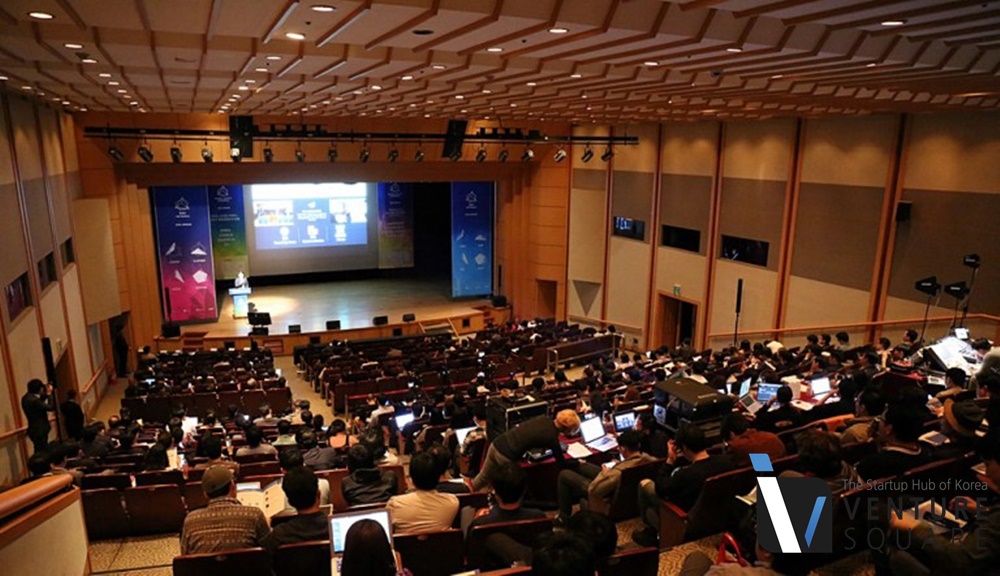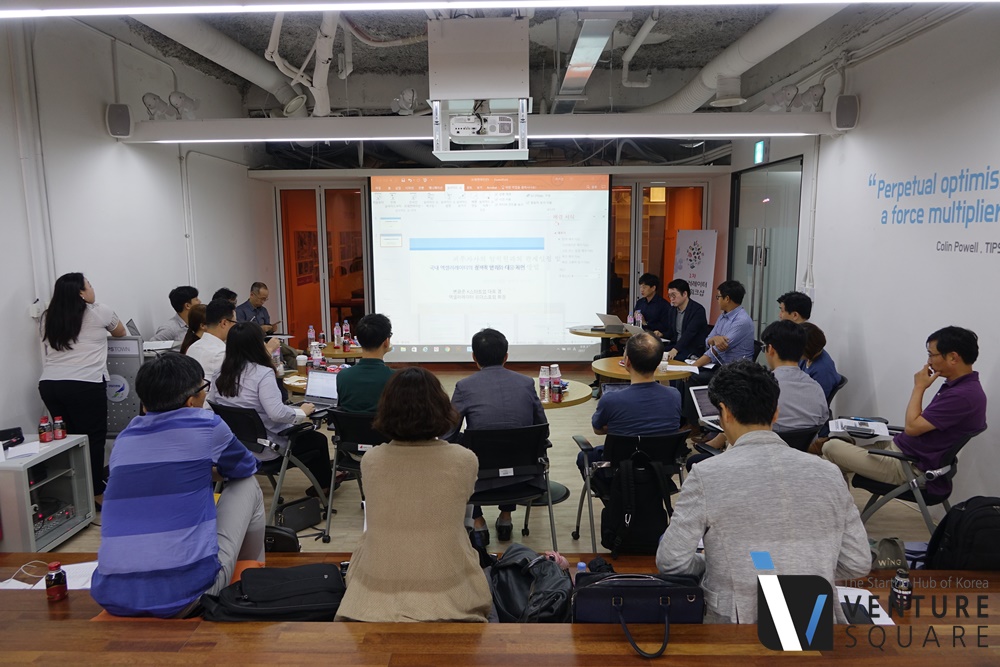A “demoday” is the obligatory finale for nearly all acceleration programs both here in Korea and abroad. But are they necessary? VentureSquare’s Dalja Lee takes a look at what’s behind the recent skepticism surrounding demodays in the startup community.
Not all demodays are the same
In Silicon Valley, demodays showcase startups that have been through acceleration programs and aim to connect them with investors. The problem is not all demodays have this same goal.
Well-known startups such as Y Combinator and 500 Startups attract a large audience. Even for ticketed events, global accelerators are always a hit. They are set up so that startups that have already received seed investment can meet investors for further funding.
Demodays are also a useful business model for accelerators. They earn profit from any funding rounds that occur as a result of the event, which then gets invested back into startup incubating spaces. It’s a virtuous cycle brought together by entrepreneurs and investors gathering in one place to achieve meaningful results.

For some accelerators, things are different and promoting their program is more important than investor relations. Judges and investors don’t necessarily take part because they’re interested, but to simply fill seats — meaning startups don’t properly get the chance to meet with investors. In these cases, the original meaning behind Demodays gets lost and it ultimately just becomes an event for the sake of it.
“It’s true that interest in demodays is slowly dropping,” says Seo Sang-bong, head of Smile Gate Center. While the number of events has increased, there is a view that startups taking part are all too similar — it’s not uncommon to see a company with exactly the same service you saw a week earlier.
When a good crowd does turn up, it’s usually when events are showcasing startups from industries that are ‘hot’ at the time. There are likely to only be a few investors in the crowd, with little chance of startups meeting them.
Seo points out that “event-focused” demodays don’t show a good cross-section of startups and that instead, are just a window into how well startups you’ve already seen over the years are progressing. People don’t necessarily see any reason to go and hear about the same-old services, and this is where the skepticism around the events stems from.
Still needed
KJ Byeon, CEO of Kstartup maintains that demodays are still needed as they’re a great way to get the word out about accelerator programs, as long as the events are focused on what startups want. This includes inviting investors and people who can help startups get real Series A investments.
Byeon gave Y Combinator as an example, which divides up teams into dates, inviting relevant investors for startups on those days only. The events are ultimately targeted at LPs and VCs who have invested in their portfolios.
“Having just the startups and investors there is enough,” says Byeon. “Rather than just an event designed to fill seats, having a demoday with just the people that matter is also one way of doing it.”
Siwan Kim of D.Camp says that demodays are a quick opportunity to get the word out about startups and acceleration programs, and are also a place to pitch teams to a large audience including investors. “As long as Demodays are useful for both startups and accelerators, I think the events will continue as they are,” says Kim.
Finding a bigger purpose for demodays
Others say that if demodays are needed by startups and accelerators, then they need to be given a clear purpose. This means moving away from typical, run-of-the-mill events and making them attractive so that investors come without the need for invitations or extra encouragement. These could be in the form of forums, themed events, or free networking opportunities. One example of this is Loa Invention Lab’s monthly startup runway showcase with themes such as fashion, pets and food tech. According to CEO Kim Jin-young, reaction from investors has been promising. “Investors were the first to sign up for events after starting themed demodays,” says Kim. “For these investors, focusing on just one area of interest is more efficient.”

Seo of Smile Gate agrees and explains that investors are the first to turn up at venues in the case of themed demodays rather than general all-encompassing events. The only caveat is that the teams that appear on stage need to be good, he says.
Recently, a group of 18 people from various accelerators and startup organizations came together to discuss issues related to local acceleration programs and find ways to solve any problems they’ve been encountering. The event also covered policies and proposals for accelerators, as well as the future direction of programs. There will be a total of three workshops which will contribute to a final report to be released at a later date.
Read the original post by Dalja Lee in Korean here.






